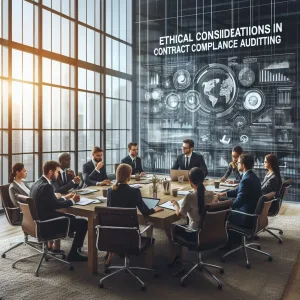Forensic examination plays a critical role in the internal audit process, particularly within nonprofit organizations. Forensic examiner jobs involve the application of investigative techniques and analytical skills to uncover financial discrepancies, fraud, and other irregularities. Forensic examiners are tasked with not only identifying these issues but also providing insights that can help organizations strengthen their internal controls and enhance overall accountability.
In the nonprofit sector, the importance of forensic examiners cannot be overstated. These professionals serve as guardians of financial integrity, ensuring that funds are used appropriately and that the organization adheres to legal and ethical standards. Given the unique nature of nonprofits, which often rely on donations and grants, the scrutiny of financial practices is paramount. Forensic examiners help build trust with stakeholders, including donors, beneficiaries, and regulatory bodies, by ensuring transparency and accountability in financial reporting.
However, forensic examiners in the nonprofit sector face distinct challenges that can complicate their work. These challenges include:
- Limited Resources: Nonprofits often operate with tight budgets, which can restrict the availability of advanced forensic tools and technologies necessary for thorough investigations.
- Complex Regulatory Environment: The nonprofit sector is subject to a myriad of regulations and compliance requirements, making it essential for forensic examiners to stay informed about the latest legal standards and practices.
- Diverse Funding Sources: Nonprofits may receive funding from various sources, including government grants, private donations, and corporate sponsorships. This diversity can complicate financial tracking and increase the risk of misappropriation.
- Occupational Stress: The pressure to uncover fraud and maintain organizational integrity can lead to high levels of stress and burnout among forensic examiners, impacting their effectiveness and job satisfaction.
By understanding these unique challenges, forensic examiners can better prepare themselves to navigate the complexities of their roles within nonprofit organizations. This blog will delve deeper into these issues, exploring potential solutions and best practices to enhance the effectiveness of forensic examinations in the nonprofit sector.
Understanding the Nonprofit Sector
Forensic examiners working within the nonprofit sector encounter a unique set of challenges that stem from the operational frameworks and characteristics of these organizations. Understanding these elements is crucial for forensic professionals aiming to navigate the complexities of their roles effectively.
- Overview of Nonprofit Organizations and Their Operational Frameworks: Nonprofit organizations are structured to serve a public or mutual benefit rather than to generate profit for owners or shareholders. They operate under a mission-driven model, focusing on social, educational, charitable, or religious objectives. This operational framework often leads to a reliance on volunteers and a diverse workforce, which can complicate accountability and oversight. The absence of profit motives can also create an environment where financial mismanagement may go unnoticed until significant issues arise.
- Reliance on Donations and Grants: Nonprofits primarily depend on donations, grants, and fundraising efforts to sustain their operations. This reliance can create vulnerabilities, as the financial health of these organizations is often tied to the fluctuating generosity of donors and the availability of grant funding. Forensic examiners must be vigilant in monitoring financial transactions and ensuring that funds are used appropriately, as the potential for fraud or misallocation of resources is heightened in environments where financial oversight may be less stringent.
- Unique Regulatory and Compliance Requirements: Nonprofit organizations are subject to a distinct set of regulatory and compliance requirements that differ from those of for-profit entities. These include adherence to specific tax regulations, reporting obligations to state and federal agencies, and compliance with donor restrictions. Forensic examiners must be well-versed in these regulations to effectively identify and address any compliance issues that may arise. The complexity of these requirements can lead to challenges in maintaining transparency and accountability, making the role of forensic examiners critical in safeguarding the integrity of nonprofit operations [3].
Forensic examiner job in the nonprofit sector must navigate a landscape characterized by mission-driven operations, financial reliance on donations, and complex regulatory frameworks. Understanding these unique challenges is essential for effectively conducting forensic examinations and ensuring the financial integrity of nonprofit organizations.
Unique Challenges Faced by Forensic Examiners in Nonprofits
Forensic examiners working within nonprofit organizations encounter a range of unique challenges that can complicate their investigations and hinder their effectiveness. Understanding these challenges is crucial for professionals in the field to navigate the complexities of their roles. Here are some of the key issues faced by forensic examiners in the nonprofit sector:
- Limited Resources and Budgets: Nonprofits often operate with constrained financial resources, which can significantly impact their ability to conduct thorough forensic investigations. The lack of funding may lead to insufficient staffing, inadequate training, and limited access to advanced forensic tools and technologies, making it difficult for examiners to perform their duties effectively [3].
- High Levels of Trust and Lack of Oversight: Many nonprofit organizations are built on a foundation of trust, which can inadvertently create an environment susceptible to fraud. The absence of stringent oversight and internal controls can leave organizations vulnerable, as individuals may exploit this trust for personal gain. Forensic examiners must navigate these dynamics carefully, as their findings can have significant implications for the organization’s reputation and stakeholder relationships [1].
- Complex Financial Structures and Diverse Funding Sources: Nonprofits often have intricate financial arrangements, including multiple funding sources such as grants, donations, and government contracts. This complexity can make it challenging for forensic examiners to trace funds and identify discrepancies. The diverse nature of funding can also lead to varying compliance requirements, further complicating the investigative process [15].
- Emotional Attachments and Stakeholder Relationships: Forensic examiners in the nonprofit sector frequently deal with emotionally charged situations, as many stakeholders have personal investments in the organization’s mission. This emotional attachment can complicate investigations, as stakeholders may resist scrutiny or become defensive when faced with potential wrongdoing. Examiners must balance the need for thorough investigations with sensitivity to these relationships.
- Legal and Ethical Considerations: Nonprofits operate under a unique set of legal and ethical standards that can complicate forensic examinations. Examiners must be well-versed in the specific regulations governing nonprofit organizations, including compliance with tax laws and donor restrictions. Additionally, ethical considerations surrounding the treatment of sensitive information and the potential impact of findings on vulnerable populations must be carefully weighed [4].
Forensic examiner jobs in the nonprofit sector face distinct challenges that require a nuanced understanding of the environment in which they operate. By recognizing these challenges, examiners can develop strategies to address them effectively, ensuring that their investigations are both thorough and sensitive to the unique context of nonprofit organizations.
Strategies and Solutions for Forensic Examiners
Forensic examiners working within nonprofit organizations face a unique set of challenges that require tailored strategies to effectively address issues related to fraud, compliance, and ethical standards. Here are some actionable strategies that can help forensic examiners navigate these complexities:
- Developing Robust Fraud Detection and Prevention Programs: Establishing comprehensive fraud detection and prevention programs is essential. This includes implementing internal controls, conducting regular audits, and creating a culture of transparency. By proactively identifying potential fraud risks, organizations can mitigate the likelihood of financial misconduct before it occurs. Forensic examiners should work closely with management to design these programs, ensuring they are tailored to the specific risks faced by the nonprofit sector [5].
- Utilizing Technology and Data Analytics in Investigations: The integration of technology and data analytics can significantly enhance the effectiveness of forensic examinations. By leveraging advanced software tools, forensic examiners can analyze large volumes of data to identify anomalies and patterns indicative of fraudulent activity. This approach not only streamlines investigations but also allows for more accurate and timely detection of irregularities.
- Building Relationships with Stakeholders for Easier Access to Information: Establishing strong relationships with key stakeholders, including board members, staff, and external partners, is crucial for forensic examiners. These relationships facilitate open communication and can lead to quicker access to necessary information during investigations. By fostering a collaborative environment, examiners can ensure that stakeholders understand the importance of transparency and cooperation in maintaining the integrity of the organization [12].
- Training and Educating Staff on Compliance and Ethical Standards: Continuous training and education on compliance and ethical standards are vital for all staff members within a nonprofit organization. Forensic examiners should develop training programs that emphasize the importance of ethical behavior and the potential consequences of fraud. By equipping staff with the knowledge and tools to recognize and report suspicious activities, organizations can create a proactive culture that discourages misconduct.
- Collaborating with Legal Experts to Navigate Complex Regulations: The nonprofit sector is often subject to a myriad of regulations and compliance requirements. Forensic examiners should collaborate with legal experts to ensure that investigations are conducted within the bounds of the law. This partnership can help navigate complex regulatory landscapes and provide guidance on best practices for compliance, ultimately protecting the organization from legal repercussions [4].
By implementing these strategies, forensic examiners in the nonprofit sector can effectively address the unique challenges they face, enhancing their ability to detect and prevent fraud while promoting a culture of integrity and accountability within their organizations.
The Future of Forensic Examination in Nonprofits
The landscape of forensic examiner job within nonprofit organizations is evolving rapidly, influenced by various factors including technological advancements, regulatory changes, and an increasing demand for transparency and accountability. Here are some key points that highlight the distinct challenges and solutions for forensic examiners in the nonprofit sector:
Impact of Technology Advancements
- Digital Evidence Management: The rise of digital transactions and online fundraising has led to an increase in digital evidence that forensic examiners must analyze. This shift requires examiners to be proficient in digital forensic techniques to effectively investigate potential fraud or mismanagement within nonprofit organizations.
- Rapid Technological Changes: As technology continues to evolve, forensic examiners face the challenge of keeping up with new tools and methodologies. This includes understanding the implications of emerging technologies such as blockchain and artificial intelligence, which can both aid in investigations and present new avenues for fraud.
- Data Analytics: The use of advanced data analytics tools is becoming essential for forensic examiners. These tools can help identify patterns and anomalies in financial data, making it easier to detect fraudulent activities. However, the challenge lies in the need for examiners to be trained in these technologies to leverage their full potential.
Future Regulatory Changes
- Increased Scrutiny and Compliance: Nonprofits are likely to face stricter regulations aimed at enhancing accountability and transparency. Forensic examiners will need to stay informed about these changes to ensure compliance and to adapt their investigative practices accordingly.
- Standardization of Practices: As the nonprofit sector becomes more regulated, there may be a push towards standardizing forensic examination practices. This could involve the development of new guidelines and best practices that forensic examiners must follow, which may require additional training and adaptation.
Growing Importance of Transparency and Accountability
- Public Trust: With increasing public scrutiny on how nonprofits operate, there is a growing demand for transparency in financial reporting and governance. Forensic examiners play a crucial role in ensuring that organizations adhere to ethical standards and maintain public trust.
- Proactive Measures: Nonprofits are beginning to adopt proactive measures to prevent fraud, such as implementing robust internal controls and conducting regular audits. Forensic examiners are essential in assessing these controls and providing recommendations for improvement, thereby enhancing the overall integrity of the organization.
- Collaboration with Stakeholders: The future of forensic examination in nonprofits will likely involve greater collaboration with various stakeholders, including board members, donors, and regulatory bodies. This collaborative approach can help create a culture of accountability and transparency, which is vital for the sustainability of nonprofit organizations.
The future of forensic examiner job in nonprofit organizations is shaped by technological advancements, evolving regulatory landscapes, and a heightened emphasis on transparency and accountability. Forensic examiners must adapt to these changes by enhancing their skills, staying informed about regulatory developments, and fostering a culture of integrity within the organizations they serve.
Conclusion
In the realm of nonprofit organizations, forensic examiners encounter a variety of unique challenges that require specialized knowledge and adaptive strategies. Throughout this discussion, we have highlighted several key issues that forensic examiners face, including:
- Inadequate Segregation of Duties: Many nonprofits struggle with limited resources, leading to insufficient internal controls and oversight. This lack of segregation can increase vulnerability to fraud, making it essential for forensic examiners to implement robust anti-fraud measures and promote better internal practices [2][8].
- Stressors in Forensic Work: The forensic environment can be particularly stressful, impacting the performance and well-being of examiners. Addressing these stressors through supportive organizational policies is crucial for maintaining high-quality forensic work and ensuring accurate outcomes.
- Need for Comprehensive Support Systems: Organizations must recognize the unique challenges faced by forensic scientists and provide the necessary resources to mitigate the psychological toll of their work. This includes ongoing training and support to adapt to evolving challenges in the nonprofit sector.
The role of forensic examiner jobs in safeguarding the integrity of nonprofit organizations cannot be overstated. They serve as critical guardians against fraud and misconduct, ensuring that resources are used effectively and ethically. By employing their expertise, forensic examiners help maintain public trust and accountability within the sector.
To navigate the complexities of their roles, it is imperative for forensic examiners to engage in ongoing education and professional development. Staying informed about emerging trends, technologies, and best practices will empower them to adapt to new challenges and enhance their effectiveness in the field. By fostering a culture of continuous learning, forensic examiners can better protect the integrity of nonprofit organizations and contribute to their long-term success.
Find out more about Shaun Stoltz https://www.shaunstoltz.com/about/
This post was written by an AI and reviewed/edited by a human.



